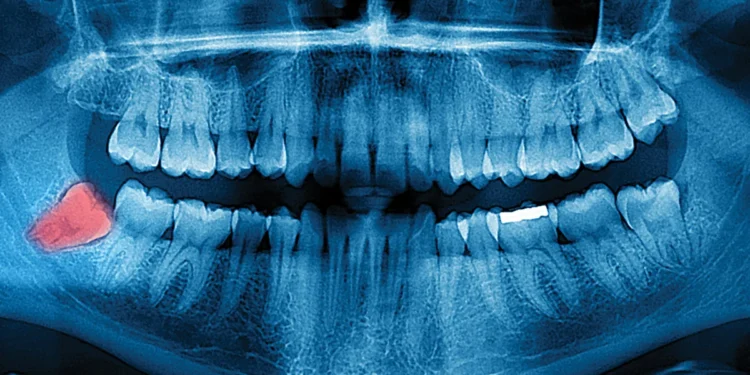Welcome to the fascinating world of wisdom teeth! These intriguing molars, also known as third molars, mark the final set of adult teeth to emerge in our mouths. Typically making their appearance between the ages of 17 and 25, wisdom teeth have puzzled researchers and individuals alike. Today, we embark on a journey to unravel the mysteries surrounding these enigmatic dental companions.
Firstly, let’s explore the prevalence of wisdom teeth in the population. Surprisingly, not everyone possesses these peculiar molars. According to an insightful research study, approximately 53% of individuals have at least one wisdom tooth. Astonishingly, there are some lucky souls who never develop wisdom teeth at all! This intriguing variation sparks curiosity about the purpose and significance of these late-blooming teeth.
While the emergence of wisdom teeth is natural for some, others encounter discomfort and complications. The most common issues include pain, tenderness, infection risk, and other oral health problems. In such cases, the removal of the troublesome molars becomes a wise consideration. However, it’s crucial to note that not all individuals require the extraction of their wisdom teeth.
If your wisdom teeth come in normally and do not cause any discomfort or complications, you might not need to part ways with them. It’s essential to keep a vigilant eye on their development and seek professional guidance from your trusted dentist. They possess the expertise to evaluate your unique situation and provide personalized advice on how to proceed.
The question arises: Are wisdom teeth vestigial, like the appendix, which has lost its original function through evolution? While the definitive answer remains a subject of ongoing research and debate, some experts believe wisdom teeth might be vestigial. Our ancestors likely required these extra molars to chew tough and coarse foods like roots, nuts, and raw meat in the distant past.
However, as our diets evolved over time, the need for these additional teeth diminished, leading to their potential vestigial status.
Are Wisdom Teeth Vestigial?
Are wisdom teeth vestigial? My patients ask this common question, wondering why we have these teeth if they often lead to removal. Let us explain this intriguing phenomenon in a simple and understandable way.
Wisdom teeth are like ancient souvenirs from our ancestors, known as vestigial organs. Imagine them as little reminders of our past that we no longer find useful in the present. As humans evolved, our jaws underwent changes, becoming shorter than our ancient relatives.
As a result, most of us don’t have sufficient space for these extra teeth to comfortably fit in our mouths.
Here comes the interesting part: some lucky individuals don’t even develop wisdom teeth anymore! It’s as if evolution decided to spare them from this curious legacy altogether. This absence is believed to be a result of our lifestyle changes and genetic variations. It’s almost like the process of evolution recognized that these teeth were becoming unnecessary for our survival and adapted accordingly.
Despite being vestigial, wisdom teeth can sometimes cause problems. They can become impacted or trapped within the jawbone since they don’t have enough room to emerge fully. This condition can lead to pain, infections, and even damage to nearby teeth. Hence, dental professionals often recommend removing them to prevent potential issues and maintain oral health.
Different Signs of Wisdom Teeth Coming In
- Gum redness or swelling, particularly behind your last molars
- Experiencing jaw pain or tenderness
- Feeling facial pain caused by the pressure exerted by the wisdom teeth on nerves
- Observing white flecks behind your last molars, likely indicating the tops of your new teeth erupting through your gums
Final Words: Are Wisdom Teeth Vestigial?
In summary, wisdom teeth are fascinating vestiges from our past, a legacy of our ancestors. Although most of us no longer have enough space for them, some fortunate individuals don’t even develop these teeth anymore due to changes in our lifestyle and genetics. While they might not serve a practical purpose in our modern lives, they are an intriguing reminder of our evolutionary journey. So, if you have any concerns about your wisdom teeth, it’s always a good idea to consult your dentist for guidance on whether they should be removed or monitored.




